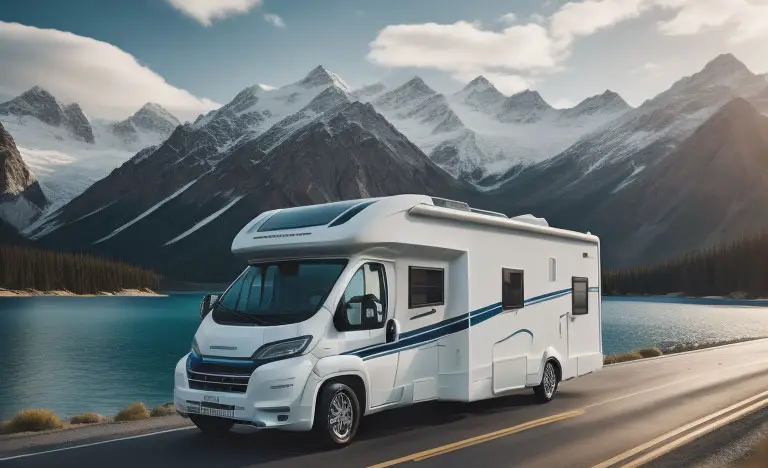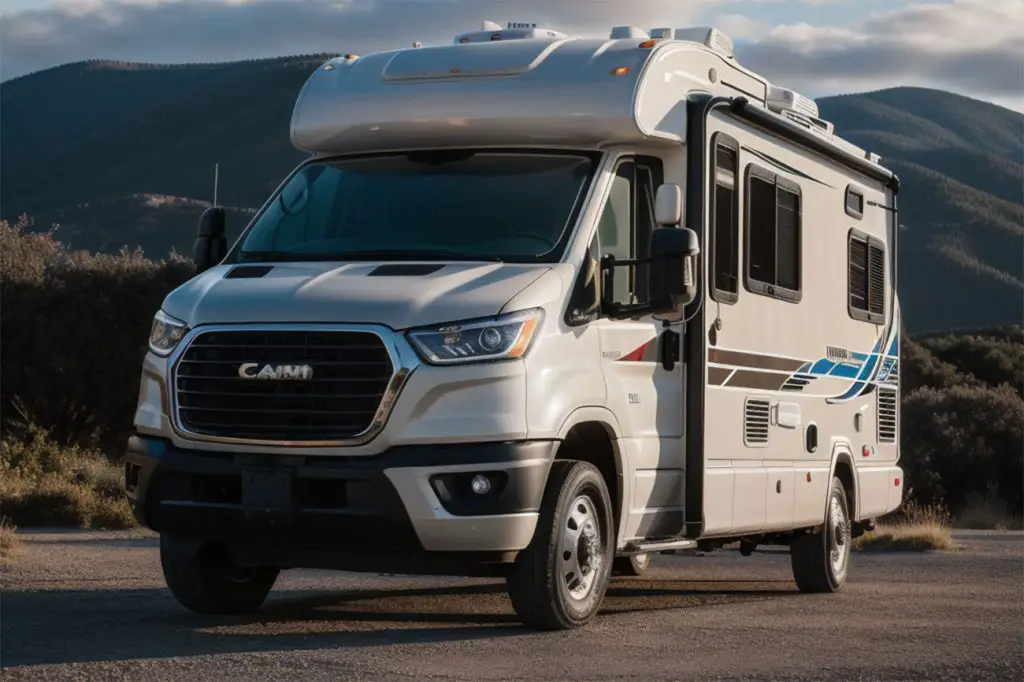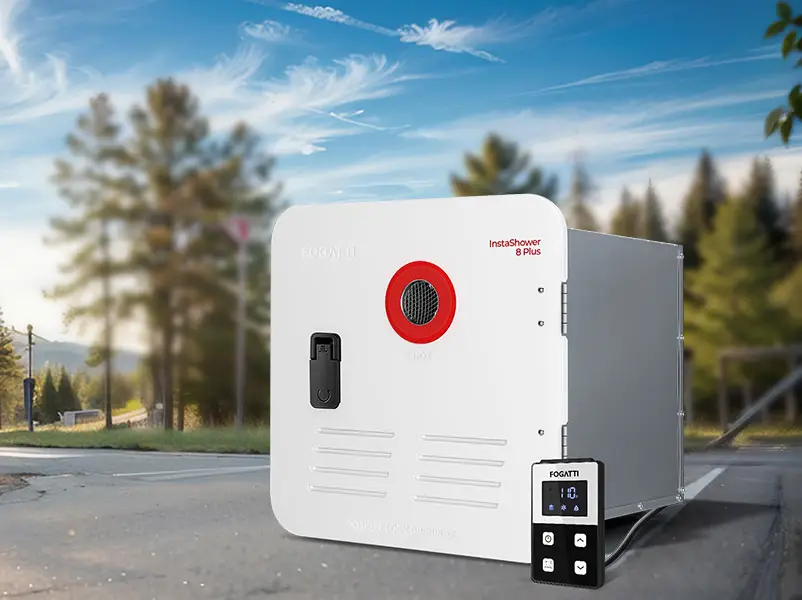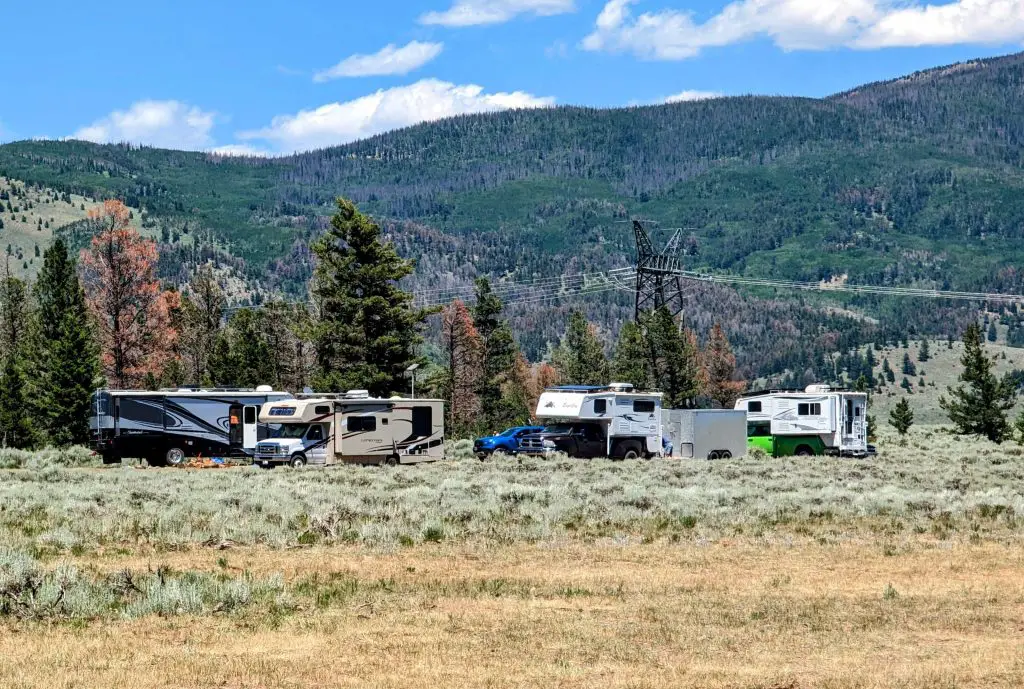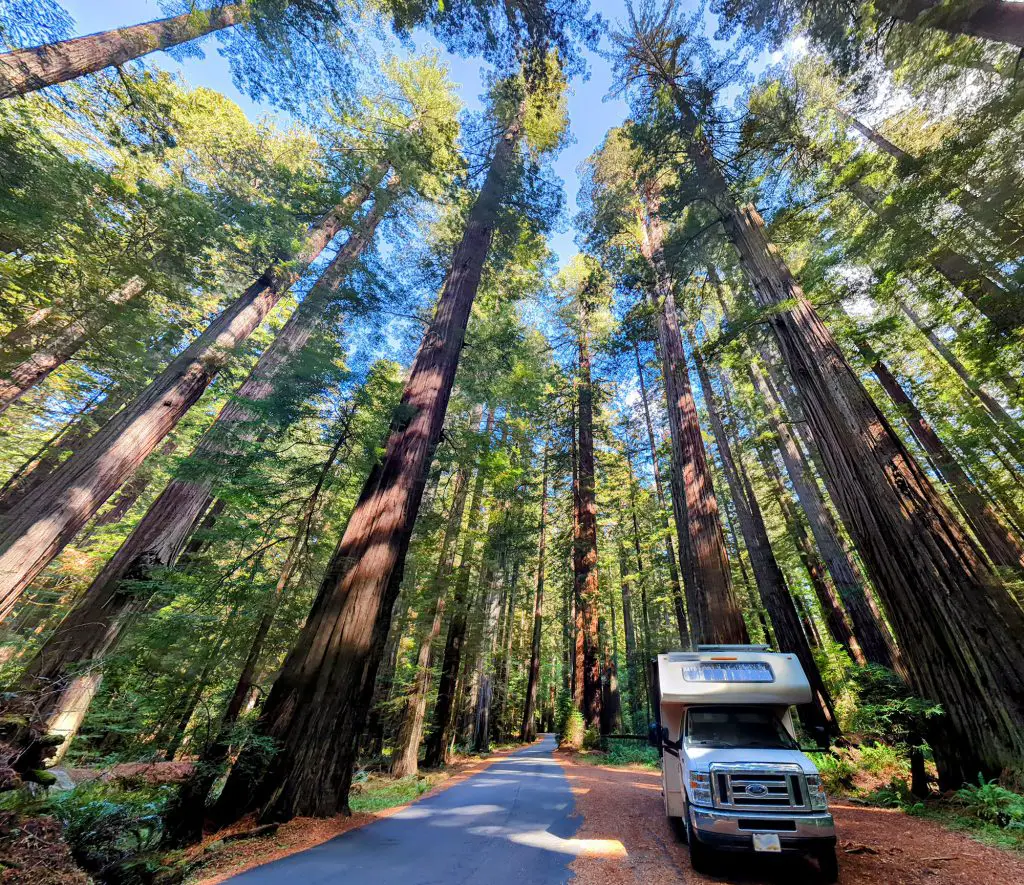Last Updated on July 5, 2023
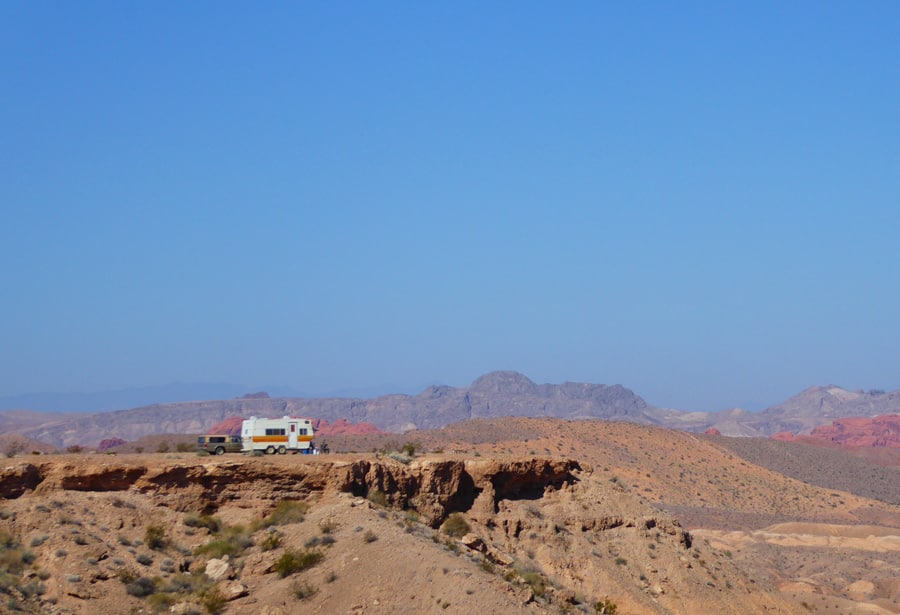
Boondocking is camping in your RV out in the “boonies”, for free, without RV hookups or facilities. Inexperienced RVers may have many questions about boondocking, so let’s answer a few questions, with these boondocking tips and tricks!
Where Do You Find Free Boondocking and Camping Locations?
Boondocking spots are on public land, usually on Forest Service or Bureau of Land Management (BLM) land. Boondocking spots are officially called “dispersed camping” on government websites. One of the best ways to find boondocking places is the Bureau of Land Management or Forest Service websites.
You can also call the local BLM or Forest Service offices, and ask about the local dispersed camping, road conditions, and local resources. Ask the rangers if they think the roads are OK for your RV. Also, stop by the local Forest Service or BLM offices, and ask for a local map. Most dispersed camping areas will have a 14-day limit, but that can vary by location.
There are websites and apps that can help you to find these places, my personal favorite is Campendium. You will find many free camping opportunities with reviews, also dump sites, and cellphone reception. Then there are others like: iOverlander, the Dyrt, Freecampsites and more. If you check out your app store, you will find many apps, most of them have options to find free camping.
It may also be a wise idea to spend a few days at a nearby RV park, while you scout out the dispersed camping areas in your car or truck. You want to make sure the roads are safe for your RV. Take your GPS unit, and write down the coordinates of the boondocking spots you find. You might also take along your phone or internet hotspot, to check the quality of cell connection. Your first concern with dispersed camping needs to be easy and safe access, with solid, level ground, and room to turn your rig around.
How Much Solar Will I Need?
The amount of boondocking RV solar you will need will vary with your usage; if you can not live without your air conditioning, or watch a big screen TV for hours at a time, or stay up all night playing video games, you’ll need many solar panels, and battery powers, boondocking is not for you! But if your electric usage is light, then you may be able to get by with 175-200W of solar. Most experienced boondockers have 300-500W of solar. You may also need to add extra batteries if you have a higher level of electrical usage.
Water
Fill up your freshwater tank before you leave the RV park. The general water use per person is 3 gallons a day, for drinking, washing, and flushing the toilet. The size of your freshwater tank, as well as your black and gray tanks, will give you an estimate of how long you can boondock. With wise water conservation methods, you can make your water last longer.
Water conservation tips:
Paper plates and other paper waste can be thrown into the campfire.
When washing a pot or pan, save the water to flush the toilet.
“If it’s yellow let it mellow, if it’s brown, flush it down”.
Catch an initial cold when running up the hot water, into a pitcher.
How Often Can I Shower?
With wise water conservation, you will save water for more showers. Between showers, you can use baby wipes for daily clean-ups. Most experienced boondockers shower every 3-5 days.
Pack It In, Pack It Out
When dry camping, keep your trash secured, either inside your RV, in the tow car, or in an outside in a storage compartment. Leaving it outside in the open will attract wild animals; animals like bears and coyotes can be dangerous, but a more serious nuisance can be rodents, who are small enough to get inside your RV, and cause damage.
Reduce your trash by purchasing items like eggs and milk in paper cartons; separate your paper trash, and put it in the campfire. But be aware of any fire restrictions, and don’t start a campfire when it’s windy!
Many RV dump stations will also have a garbage dumpster. If you are headed for an RV park, they will also have a trash dumpster.
[amazon bestseller=”rv solar panels” items=”3″]
Is Boondocking Safe?
Many worry about boondocking safety, especially women. But most crime happens in big cities, and the chances that criminals are driving around “out in the boonies”, looking for campers to rape and rob are nearly non-existent.
Lock your RV when you’re out hiking and do not leave anything too valuable outside; most boondockers will chain their generator to the RV. Be aware of your environment, and if you really worry about safety, stay within cell service range.
When it comes to wildlife, be aware of where you hike, don’t let your pets roam free, and keep your garbage locked up. If you are camping in a mountain lion or bear country, take extra precautions when hiking, such as carrying a walking stick and a can of bear spray. And don’t feed any animals, even seemingly harmless animals like squirrels can start to cause trouble around your camp.


